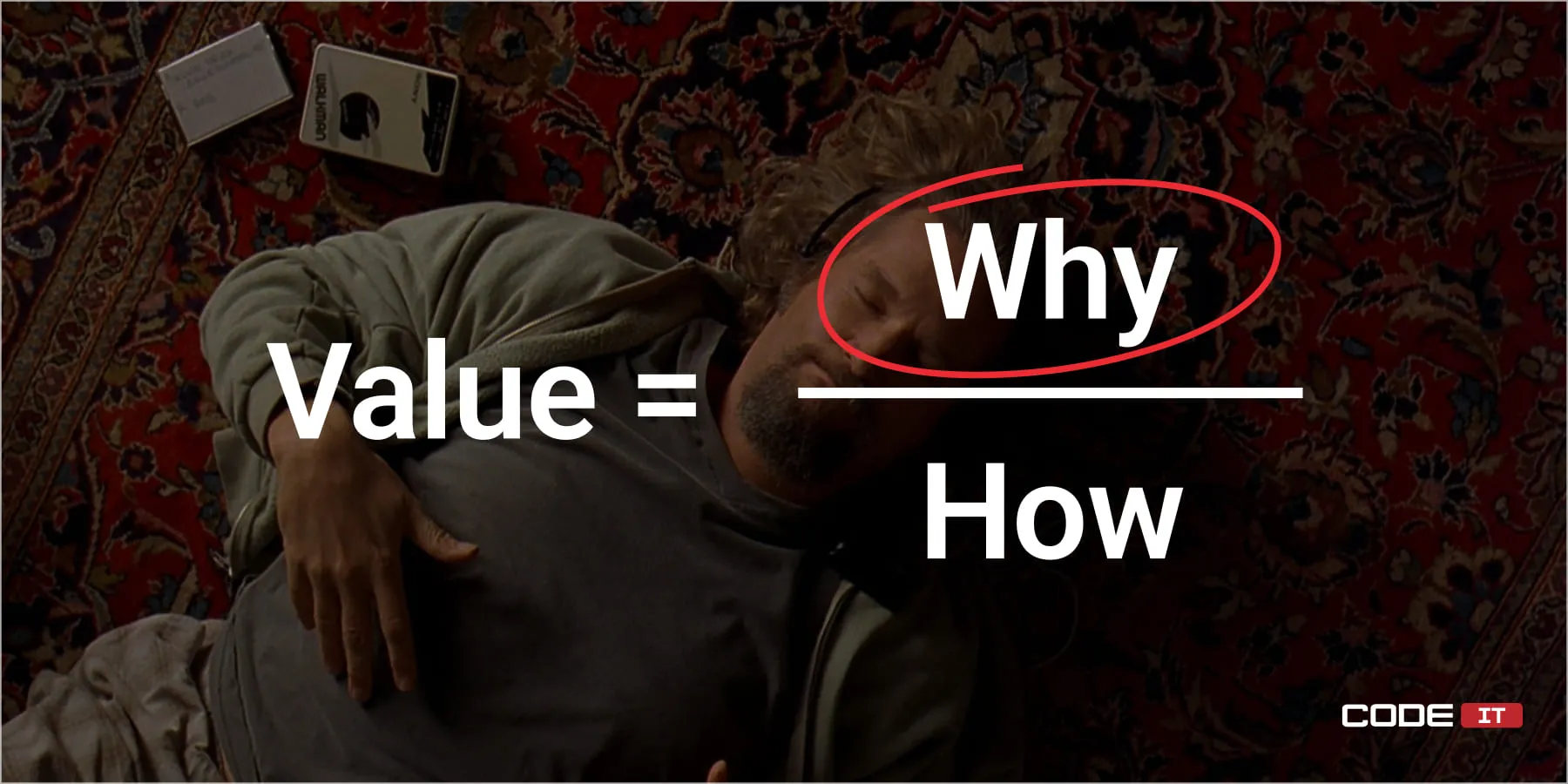Dude’s Law: Why It’s Important to Start with Why


Have you ever wondered why some ideas, features, or changes to a team/product are accepted well while others don’t? Usually, there’s nothing wrong with the idea per se, but the way it is presented. That’s what Dude’s Law, formulated by David Hasman (a well-known Agile coach, trainer, and consultant), talks about. Its essence is simple: we should always focus on the value, and to maximize it, we should clearly understand why we need something rather than how exactly we do that.
Dude’s Law is:

The bigger the Why, the bigger the Value. Simple! In other words, if you can’t explain why something is needed, you shouldn’t do it. There’s little to no value.
Before introducing a new feature in a product, we should first clearly understand why our users need it. And if our understanding is strong enough, then value will go through the roof.
Before introducing a new rule, process, or tool, it’s important to communicate its purpose and value. People tend not to just follow instructions but rather know how they will benefit from this.
For example, imagine you want to implement regular retrospectives in your team. You can simply say, “Now we’ll meet every week to discuss what went well and what didn’t. We’ll use the Miro board, so stay tuned for the invite.” But if the team doesn’t understand why this is necessary, such meetings can turn into a formality.
Instead, it’s better to focus on why: “Retrospectives will help us to find areas for improvements, simplify processes, and make our work more comfortable. This is a chance for everyone to speak up and influence our project.” When the team sees value, they are more enthusiastic about the process. You don’t necessarily have to focus on how—just start with something simple (gather online, share your screen with a spreadsheet – just enough for starters), and then improve it step by step.
Dude’s Law shows us that value is not in the processes, features, or tools themselves but in how they help you achieve your goals. When you start with the why, you create a foundation for meaningful and effective change that is going to be well accepted.
So the next time you want to suggest something, ask yourself, “Why is this necessary?” Then, your ideas will not only be heard but also supported.
Build your ideal software today




